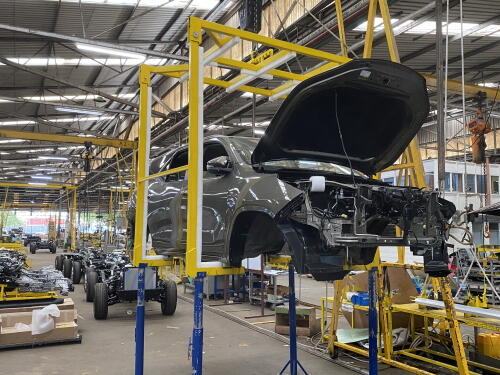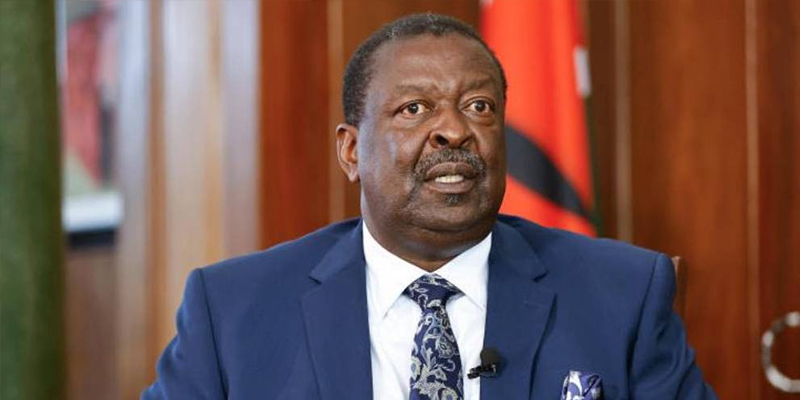Japan has pledged up to 25 billion yen ($169.42 million) in Samurai financing to Kenya, a facility designed to strengthen the East African nation’s vehicle assembly and energy sectors. Officials confirmed the arrangement on Thursday during the Ninth Tokyo International Conference on African Development (TICAD 9), attended by Japanese Prime Minister Shigeru Ishiba and Kenyan President William Ruto.
The agreement was formally signed by Kenyan Foreign Affairs Minister Musalia Mudavadi and Nippon Export and Investment Insurance (NEXI) CEO Atsuo Kuroda.
Mudavadi hailed the deal as an important step in enhancing Kenya’s industrial base while also addressing persistent challenges in the energy sector. “This facility will strengthen our local vehicle assembly and parts manufacturing industry while also addressing electricity transmission and distribution losses, currently standing at about 23% of our national output,” he stated in a post on X.
The announcement came a day after a term sheet for the yen-denominated loan was signed, with Japan’s foreign ministry confirming it will be NEXI-guaranteed. This structure is intended to reduce Kenya’s sovereign borrowing costs, though officials did not disclose specific terms of the loan.
Kenya, the region’s largest economy, has been seeking to diversify its funding options at a time when global financial markets remain volatile and U.S. interest rates remain elevated.
Loan To Support Vehicle And Energy Sectors
Speaking at TICAD, Raphael Otieno, Kenya’s director-general of debt management at the Ministry of Finance, explained that Nairobi is shifting its strategy away from short-term refinancing risks toward reducing the overall cost of borrowing. “The cost of our debt is very, very high,” Otieno remarked during a panel discussion.
He revealed that the government is exploring alternative instruments such as sustainability-linked bonds with guarantees, yen-denominated Samurai bonds, renminbi-denominated Panda bonds, and even debt swaps as part of efforts to bring down expensive obligations. Otieno also disclosed that the Treasury has already prepaid some domestic bonds and intends to expand such operations in the near term.
Regarding whether future yen- or renminbi-linked borrowings would be hedged, Otieno said the exposures would remain unhedged for the moment but would be reviewed annually under Kenya’s debt-management framework.
Kenya’s car assembly industry, one of the sectors expected to benefit from the Samurai financing, represents a crucial part of the country’s industrial growth story. Over the last decade, Kenya has steadily expanded its assembly capacity, aiming to cut reliance on imported vehicles while fostering local expertise and job creation.
At the core of this expansion lies the government’s Big Four Agenda, which prioritizes manufacturing as a driver of economic transformation. Public-private partnerships have been instrumental in this growth, with local firms such as Mobius Motors and Loop Motors producing affordable, Africa-specific vehicles. Larger assemblers like Isuzu East Africa and DT Dobie Kenya have focused on commercial trucks and buses to support logistics and transport needs across the region.
Kenya’s geographic position within the East African Community (EAC) further boosts the attractiveness of local assembly. With access to a market of more than 180 million people, global brands such as Toyota and Nissan have established assembly operations to bypass costly import tariffs while benefiting from regional trade agreements.
Yet, significant hurdles persist. High production costs, supply chain constraints, and competition from cheaper completely built unit (CBU) imports continue to challenge the sector. Despite protective tariffs, imported vehicles often remain more affordable for consumers, undermining domestic assembly.

Nonetheless, government initiatives and private investments in skills training and local content development are gradually improving the competitiveness and sustainability of Kenya’s assembly industry. These efforts not only foster technology transfer but also enhance prospects for trade across East Africa and beyond.
As Kenya continues to pursue industrialization, its vehicle assembly sector stands as a critical pillar of future growth. The infusion of Japanese Samurai financing signals international confidence in this ambition and offers the potential to address both industrial and energy bottlenecks.
READ ALSO: Ghost Jobs Collapse At Ghana’s Ballot Box























